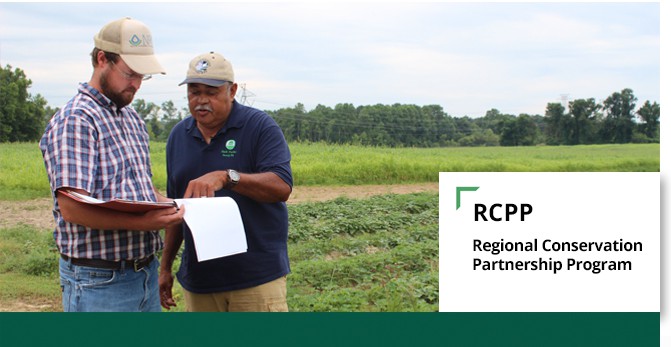RICHMOND, VA – Capital Region Land Conservancy (CRLC) is teaming up with the U.S. Department of Agriculture’s Natural Resources Conservation Service (NRCS) on a new initiative to protect wildlife habitat and water quality while preserving farmland in the Richmond metropolitan area. NRCS will provide $2,081,169 through the Regional Conservation Partnership Program (RCPP) to fund CRLC’s proposal, “Preserving Working Farms and Securing Urban Ag,” which focuses on accelerating the rate of land protection in the area.
According to the American Farmland Trust’s “Farms Under Threat” report and U.S. Agricultural Census data, the Richmond region has experienced a loss of approximately 87,539 acres of farmland since 1982 – a conversion rate of more than 25 percent. Capital Region Land Conservancy is among the first land trusts in the nation to explore RCPP’s new easement options authorized in the 2018 Farm Bill to help reverse this trend.
CRLC will partner with NRCS to conduct outreach and educational programs , assist in negotiation of deed terms for conservation easements, and hold easements as an eligible entity. NRCS could also be the holder of conservation easements and provide greater financial assistance to landowners.
“The Regional Conservation Partnership Program is public-private partnership working at its best,” said Terry Cosby, Acting Chief for USDA’s Natural Resources Conservation Service. “These new projects will harness the power of partnership to help bring about solutions to natural resource concerns across the country while supporting our efforts to combat the climate crisis.”
In addition to preserving farmland through the partial purchase of conservation easements, CRLC’s project includes activities that support urban agriculture. Most farmers and ranchers lease the property where they work (often without long-term contracts) because it is generally more expensive and less affordable to acquire the land. Despite investing sweat equity into building out a viable operation, urban farmers typically face a greater likelihood of eviction due to threats of development.
CRLC is considering using a buy-protect-sell model to help generate wealth and equity in underserved communities. Property is purchased with the goal of protecting it through a conservation easement and then sold to a previously identified buyer. Another option is to work with the Central Virginia Agrarian Commons to establish a local cooperative with land donations and producers who contribute to increasing the available acreage for urban agriculture.
“We couldn’t be more excited to participate in RCPP for the first time” said CRLC Executive Director Parker Agelasto. “Our project will not only help to protect the working farms that support Virginia’s leading industry but also address some of the critical funding needs to expand urban agriculture in the underserved communities of Richmond.”
The Regional Conservation Partnership Program has been bringing new partners, resources, and ideas to the table since 2014. This year, NRCS will invest $330 million in 85 locally driven projects to help local farmers, ranchers and forest landowners implement systems that conserve water and soil resources, enhance wildlife habitat and increase climate resilience. RCPP projects offer impactful and measurable outcomes. Throughout its history, RCPP has leveraged partner contributions of more than $1 for every $1 invested by USDA, resulting in nearly $3 billion collectively invested in natural resource conservation on private lands.

